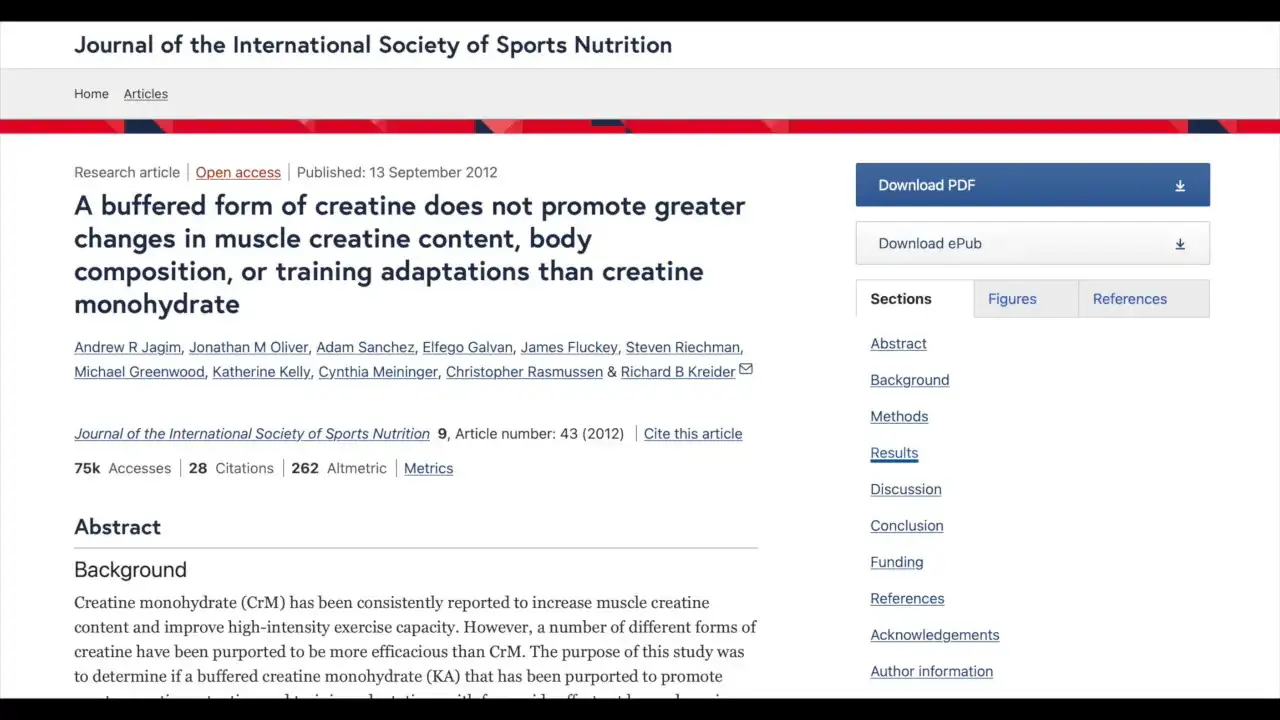
Kre-Alkalyn creatine has gained popularity among athletes and fitness enthusiasts, but questions remain about its efficacy—and, critically, creatine safety. This article delves into the interview conducted by Dr. Mike with Dr. Jeff Golini and Brian Andrews, the science behind Kre-Alkalyn, its advantages over traditional creatine monohydrate, and the controversies surrounding it, including the Merck Index and questionable studies like those conducted by Alzchem.
Creatine is a naturally occurring compound found in muscle cells. It plays a critical role in energy production during high-intensity exercise. The body synthesizes creatine from amino acids and can obtain it from dietary sources like meat and fish. However, supplementation is often used to enhance athletic performance and muscle mass.
Many people have experienced side effects with traditional creatine monohydrate, such as bloating and stomach discomfort. Kre-Alkalyn was developed to address these issues. Dr. Jeff Golini, its inventor and formulator for EFX Sports, highlights that Kre-Alkalyn is the only form of creatine that remains stable in solution and does not convert to creatinine, a byproduct that can lead to adverse effects.

One of the critical issues with creatine monohydrate is its stability. Upon dissolving in water, it begins to convert to creatinine, which is a waste product. As stated in the Merck Index, every known compound has specific stability characteristics, and it is noted that creatine in an aqueous solution converts to creatinine. This conversion can lead to side effects that athletes want to avoid.

The Merck Index is considered a definitive reference for chemists, detailing various compounds and their properties. It clearly states that when creatine is in solution, it forms creatinine. This fact underlines the importance of choosing a stable form of creatine. With Kre-Alkalyn, the pH is elevated to prevent this conversion, making it a safer option for long-term use.
Many myths surround creatine supplementation. Some individuals believe that all forms of creatine are the same, but this isn’t true. Kre-Alkalyn’s buffered formula allows it to be more efficient and utilized by the body without the side effects associated with creatine monohydrate.
Alzchem conducted a study claiming that “buffered creatine does not provide benefits over traditional creatine monohydrate.” However, this research has been criticized for lacking transparency and methodology. Brian Andrews has shared that his team sought to review the study’s data but was initially denied access. After legal intervention, the study’s core data was still not released for review. Moreover, despite trying to discredit it as a viable option, they have subsequently tried to release their own forms of buffered creatine over the past decade or more.

Consumers should always consider the quality of the creatine they are purchasing. Many cheap options are sourced from overseas and may contain impurities. Kre-Alkalyn is manufactured in the USA, ensuring higher quality control standards and product integrity.
One of the best ways to understand Kre-Alkalyn’s effectiveness is to try it for yourself. Many users report noticeable improvements in strength and recovery, often commenting that they feel a significant difference when they stop using it. This anecdotal evidence supports EFX Sports’ claims about the benefits of Kre-Alkalyn over traditional creatine.

In summary, Kre-Alkalyn creatine offers a stable, effective alternative to traditional creatine monohydrate, with fewer side effects and a focus on quality. The ongoing debates and controversies, particularly those stemming from studies like Alzchem’s, highlight the importance of transparency and integrity in the supplement industry. Despite any claims, potential users should always research and consider personal experiences when choosing a supplement.
If you want to try Kre-Alkalyn, click here and use Dr. Mike’s code: HYBRID.